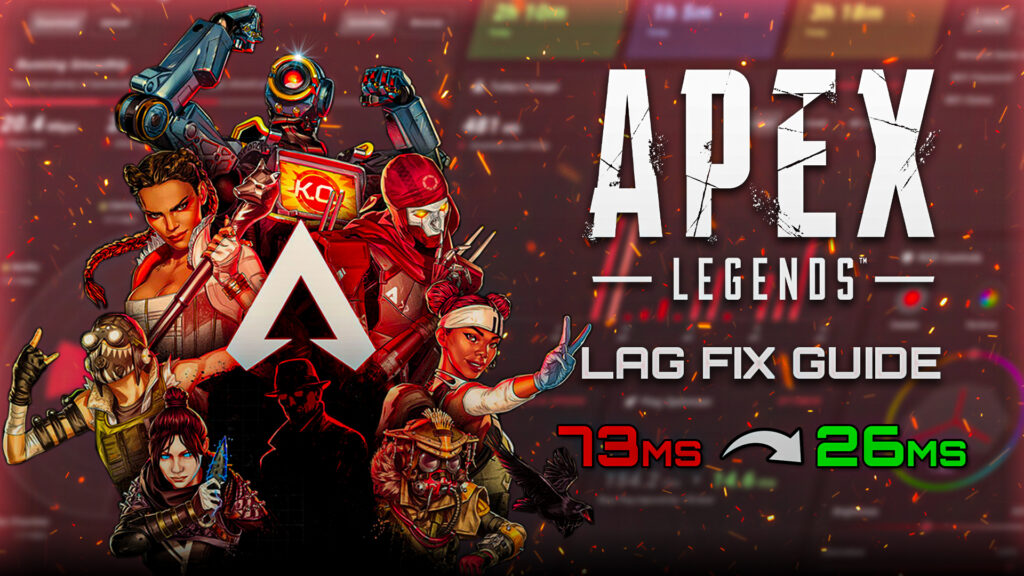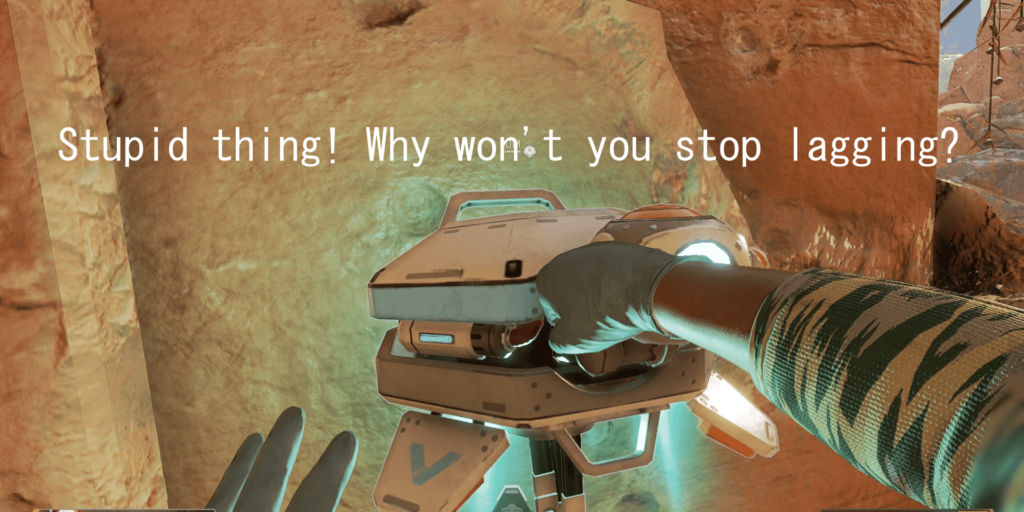Apex Legends is one of the most popular battle royale games, known for its fast-paced gameplay and strategic combat. However, many players have experienced frustrating lag and connectivity issues that can ruin the gaming experience. If you’ve found yourself asking, “Why am I lagging in Apex Legends?” or “Why are the Apex servers so bad?“, you’re not alone. In this article, we’ll explore the common causes of lag in Apex Legends, discuss why the servers often struggle, and provide tips on how to reduce lag and improve your gameplay.

Why Am I Lagging in Apex Legends?
Lag in Apex Legends can stem from a variety of factors, ranging from server issues to problems with your own hardware or internet connection. Understanding the root cause is the first step in resolving the issue.
1. Server Performance Issues
One of the most common reasons for lag in Apex Legends is poor server performance. This can manifest as high ping, packet loss, or rubberbanding (where your character moves erratically due to delayed inputs). Server lag is often out of the player’s control and can be particularly frustrating during critical moments in the game.
2. Internet Connection Problems
Your internet connection plays a significant role in your gameplay experience. Slow speeds, high latency, or an unstable connection can cause significant lag. Factors that can affect your connection include:
- Bandwidth: If other devices or users are heavily using your internet connection, it can reduce the bandwidth available for Apex Legends, leading to lag.
- Wi-Fi vs. Wired Connection: Wi-Fi connections are more prone to interference and signal loss compared to a wired Ethernet connection, which provides a more stable and consistent connection.
3. Hardware Limitations
If your PC or console is struggling to keep up with the demands of Apex Legends, you may experience performance-related lag. This can include low frame rates, screen tearing, or stuttering, all of which can negatively impact your gameplay.
- Outdated Hardware: Older PCs or consoles may not meet the recommended specifications for Apex Legends, leading to performance issues.
- Overheating: If your hardware is overheating, it may throttle performance to prevent damage, which can cause lag.
4. In-Game Settings
Sometimes, the settings you’ve chosen in Apex Legends can contribute to lag. High graphics settings can put extra strain on your hardware, especially if it’s not optimized for your system.
- Graphics Settings: Running the game on ultra settings on a machine that can’t handle it can lead to lower frame rates and increased input delay.
- Network Settings: Certain network settings in the game can affect your connection stability, such as the server region you’re connected to.
Why Are the Apex Servers So Bad?
Many players have expressed frustration with the quality of Apex Legends servers, often asking, “Why are the Apex servers so bad?” or “Why does Apex lag so much?” Here are some of the common reasons:
1. Server Overload
Apex Legends often experiences spikes in player activity, especially after new updates, seasons, or events. When too many players are trying to connect to the servers simultaneously, it can cause server overload, leading to lag, disconnections, and other issues.
2. Server Maintenance and Updates
During server maintenance or after updates, servers may become unstable as developers work to implement new features or fix bugs. This can lead to temporary performance issues that result in lag.
3. Server Location and Distance
The location of the server you’re connected to can significantly affect your ping and overall connection quality. If you’re playing on a server that is far from your physical location, you may experience higher latency, resulting in noticeable lag.
4. Packet Loss and High Ping
Packet loss occurs when data packets traveling between your device and the server fail to reach their destination. This can lead to desynchronization between the server and your game client, causing lag. High ping, often caused by network congestion or distant servers, can also make the game feel unresponsive.

Why Is Apex Lagging So Bad? How to Fix It
If you’re asking, “Why is Apex lagging so bad?” and want to know how to improve your experience, here are some steps you can take to reduce lag and improve your gameplay:
1. Optimize Your Internet Connection
- Use a Wired Connection: Switch from Wi-Fi to a wired Ethernet connection to reduce latency and provide a more stable connection.
- Close Background Applications: Ensure that other applications or devices aren’t hogging your bandwidth. Close any unnecessary programs that might be using the internet.
- Check Your Network Speed: Use an online speed test to check your internet connection. If your speeds are lower than expected, consider upgrading your plan or contacting your ISP for assistance.
2. Adjust In-Game Settings
- Lower Graphics Settings: Reduce your graphics settings to lighten the load on your hardware. Lowering settings such as texture quality, shadows, and effects can help improve performance.
- Change Server Region: In the game’s network settings, try switching to a server region with lower ping. Sometimes, even nearby servers can experience issues, so experimenting with different regions may help.
3. Update Hardware Drivers
Ensure that your graphics card drivers and other hardware-related software are up to date. Outdated drivers can cause performance issues and lag.
4. Upgrade Your Hardware
If you’re playing on an older system, consider upgrading your hardware. A more powerful GPU, additional RAM, or a faster CPU can significantly improve your gaming performance.
5. Monitor Server Status
Check the official Apex Legends social media channels or community forums for updates on server status. If there’s widespread lag, it could be due to ongoing maintenance or temporary server issues.
6. Use a VPN
In some cases, using a VPN can help reduce lag by routing your connection through a less congested network path. However, this can be hit or miss depending on your location and the VPN service used.

Conclusion
Lag in Apex Legends can be a frustrating issue that impacts your gaming experience. Whether it’s due to server problems, internet connection issues, or hardware limitations, understanding the root cause is the first step in addressing it. By optimizing your connection, adjusting your game settings, and keeping your hardware up to date, you can reduce lag and enjoy a smoother, more responsive gaming experience. If all else fails, remember that some issues are out of your control, and it may be best to take a break until the servers stabilize. Happy gaming!



